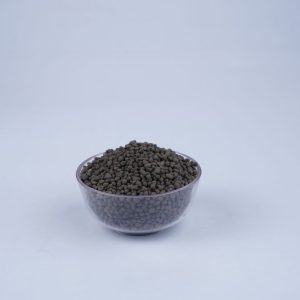Organic fertilizers are often surrounded by misconceptions that can deter farmers and gardeners from adopting these eco-friendly solutions. Myths such as “organic fertilizers are less effective,” “they harm soil health,” or “they are too expensive” misrepresent the true benefits of these natural alternatives. In reality, organic fertilizers enrich soil with essential nutrients, improve long-term fertility, and are cost-effective over time. This blog addresses these common myths and provides evidence-based insights to debunk them, highlighting the role of organic fertilizers in sustainable agriculture and their ability to support healthy crops, resilient soils, and an environmentally conscious farming approach.
Think organic fertilizers are ineffective? Let’s debunk the myths!
Many believe organic fertilizers are less effective or too costly, but these are misconceptions. Organic fertilizers improve soil health, provide balanced nutrients, and enhance long-term productivity. This blog debunks common myths, showing how these eco-friendly alternatives support sustainable farming while promoting healthier crops and reducing environmental impact.

Boosts Long-Term Soil Health
Provides Balanced Nutrient Release
Improves Crop Yield Naturally
Reduces Environmental Impact Significantly
Supports Sustainable Farming Practices
Enhances Soil Microbial Activity
Cost-Effective Over Time
Organic fertilizers enhance soil health, promote balanced nutrient release, and support natural crop growth. They improve microbial activity, reduce environmental harm, and align with sustainable farming practices. Over time, their long-term benefits outweigh initial costs, making them an eco-friendly, cost-effective choice for healthier crops and resilient soils.
The ultimate goal of farming is not the growing of crops, but the cultivation and perfection of human beings Masanobu Fukuoka - Japanese farmer, philosopher, pioneer of natural farming
Uncover the truth behind organic fertilizer myths!
Many myths surround organic fertilizers, often leading to misconceptions about their effectiveness and value. These include beliefs that they are less potent, more expensive, or harmful to soil health. In reality, organic fertilizers improve soil structure, enhance nutrient availability, and support long-term crop yields, making them an eco-friendly and cost-effective choice for sustainable farming.
Improved Soil Fertility and Structure
Reduced Chemical Dependency
Enhanced Sustainability and Biodiversity


In conclusion, organic fertilizers offer numerous benefits that go beyond common misconceptions. They enhance soil health, promote sustainable farming practices, and reduce environmental impact, all while supporting long-term crop productivity. By debunking these myths, it’s clear that organic fertilizers are an essential tool for a healthier, more sustainable agricultural future.






